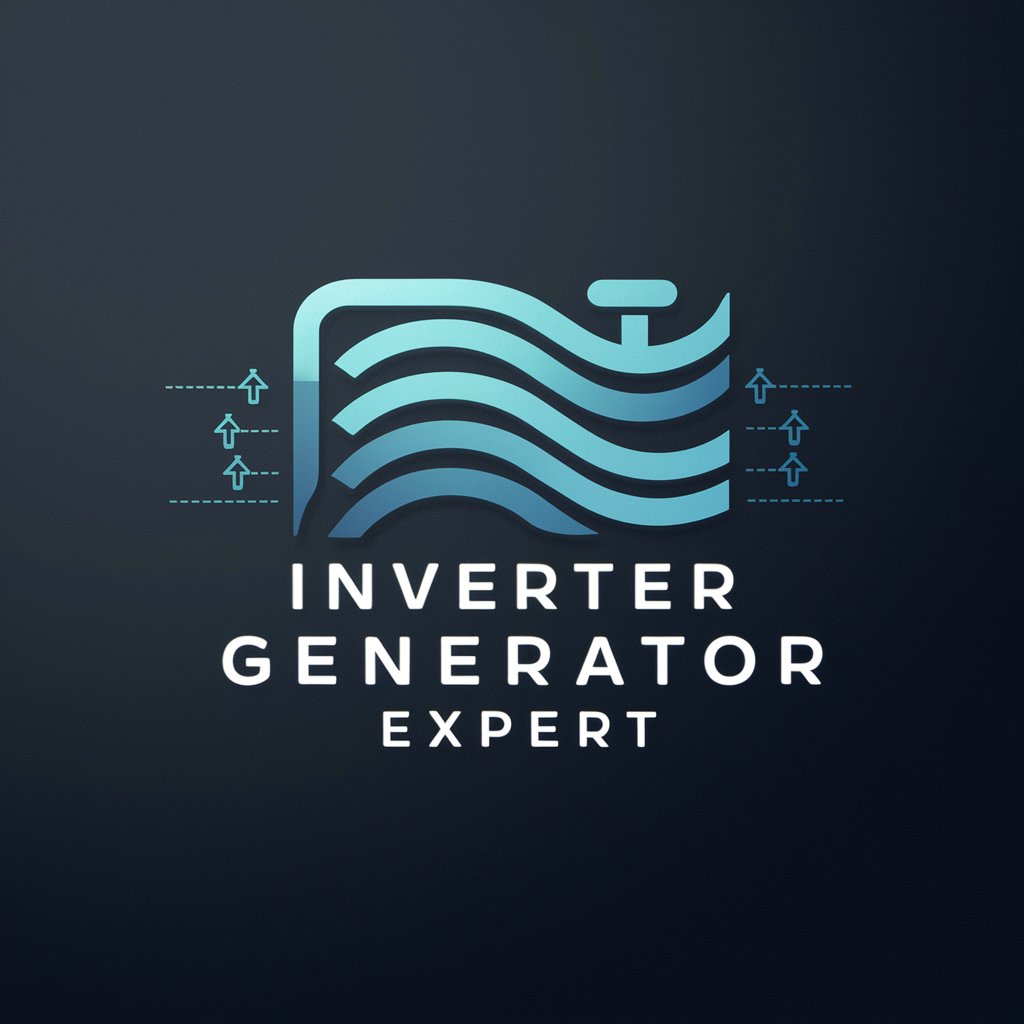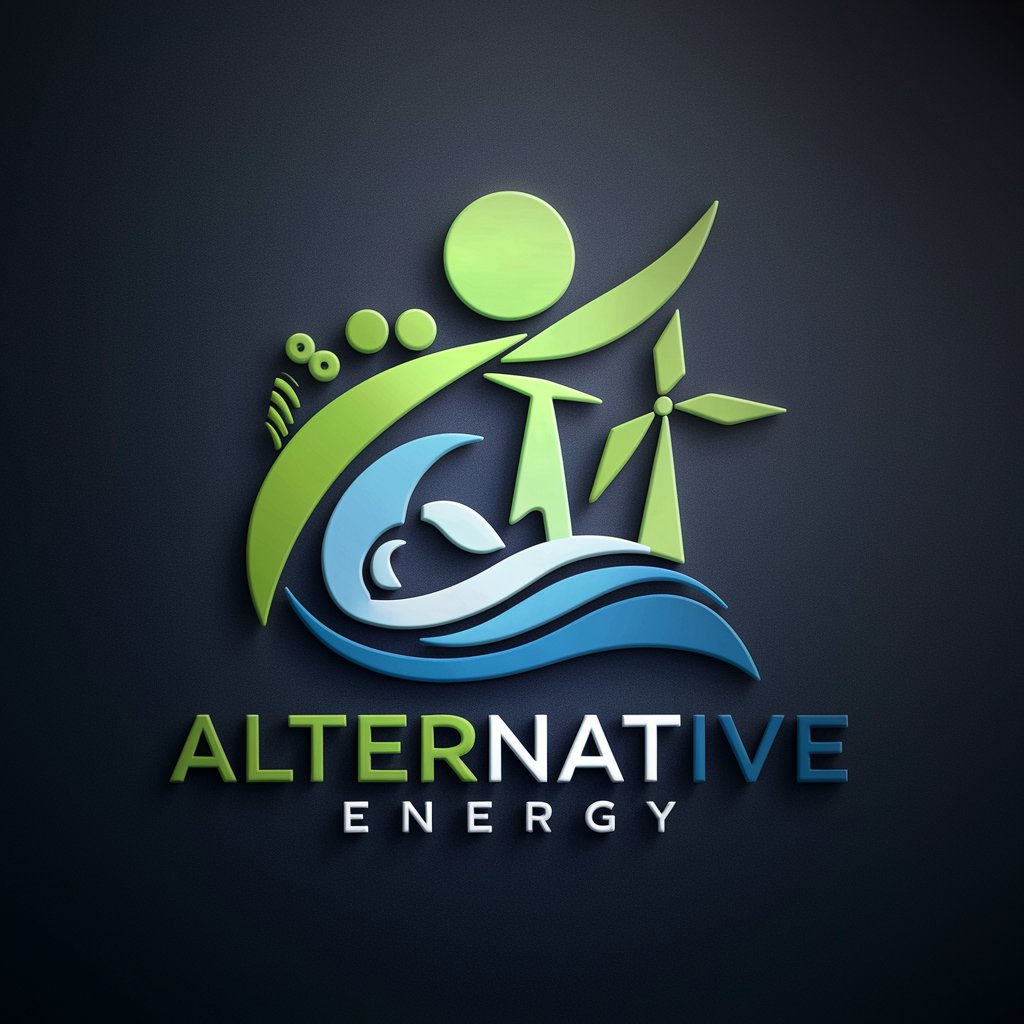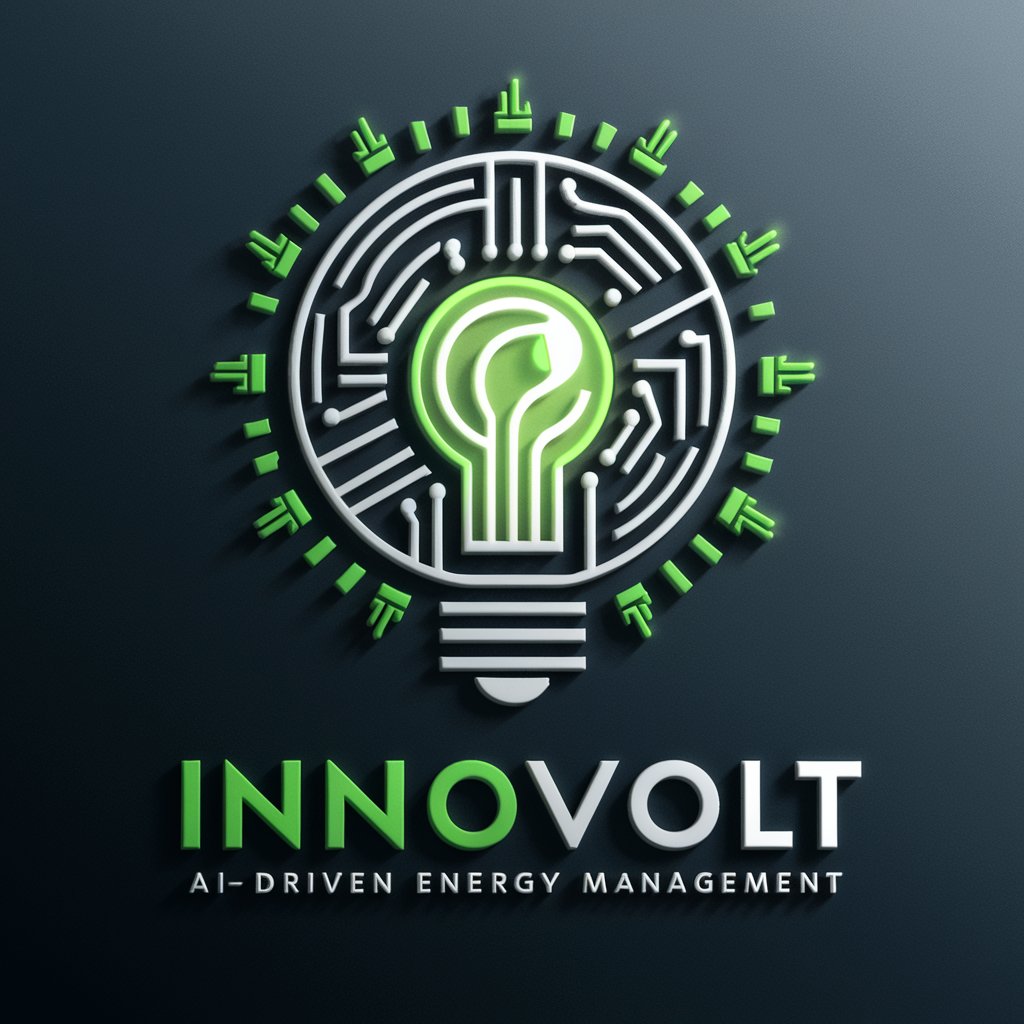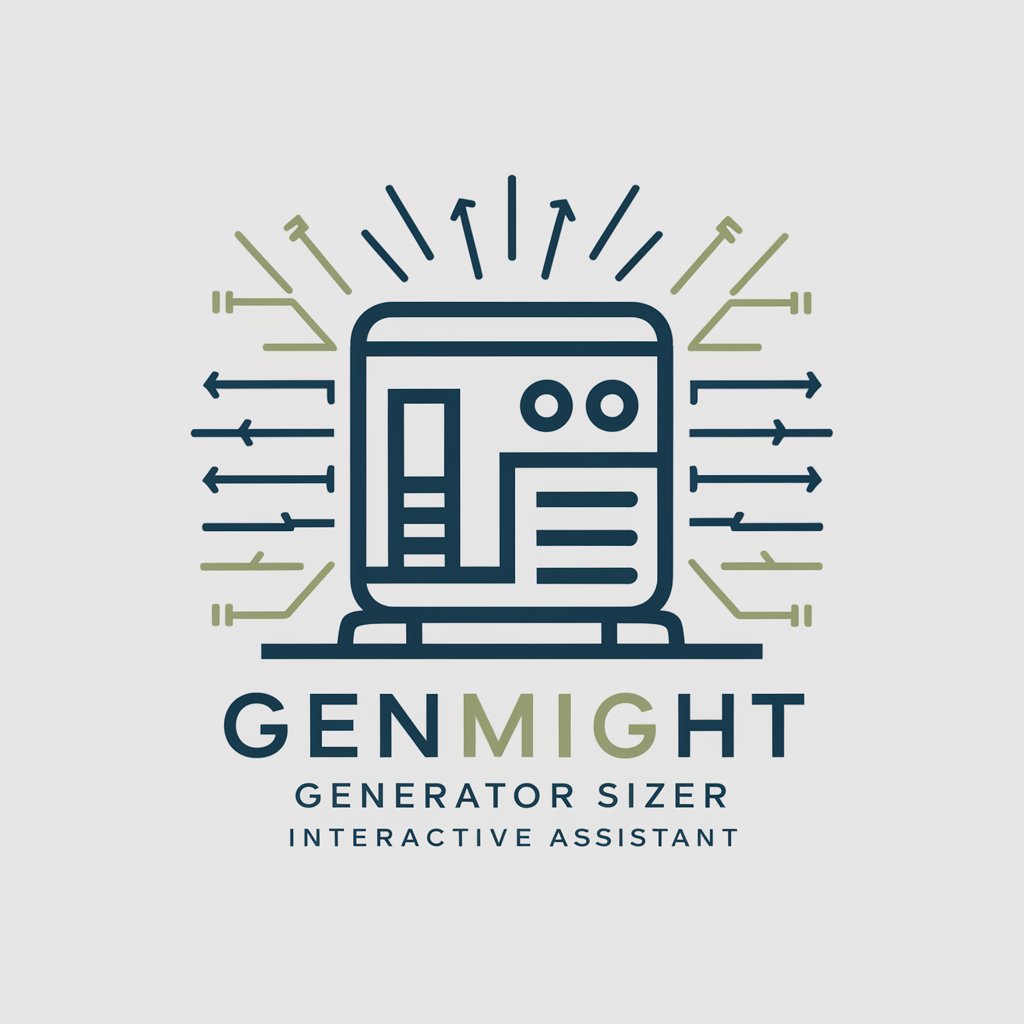
Inverter Generator - In-Depth Generator Insights

Welcome! Need help with generators and backup power? I'm here to assist.
Powering Your World, Smartly
Can you explain the difference between inverter generators and conventional generators?
What are the essential maintenance tips for keeping an inverter generator in top condition?
How does an inverter generator provide cleaner power compared to a standard generator?
What are the best practices for safely storing a generator when not in use?
Get Embed Code
Understanding Inverter Generators
Inverter generators are a type of portable generator that converts DC (direct current) into AC (alternating current) using electronic circuitry. The key feature that sets inverter generators apart from conventional generators is their ability to produce clean, stable power that is comparable to the electricity supplied by utility companies. This is achieved through a three-phase process where the generator first produces AC electricity, converts it to DC, and then back to AC again, but this time at the desired frequency and voltage. The inverter technology allows for a more compact and lightweight design, making these generators ideal for portable use. They operate more quietly and efficiently than traditional generators, adjusting the engine speed to match the load, which results in lower fuel consumption and reduced emissions. Examples of scenarios where inverter generators shine include powering sensitive electronic devices such as laptops, smartphones, and medical equipment during camping trips, RV travels, or in emergency power outages at home. Powered by ChatGPT-4o。

Key Functions and Applications of Inverter Generators
Powering Sensitive Electronics
Example
Laptops, cameras, medical devices
Scenario
An inverter generator's clean power output makes it ideal for use with sensitive electronics, which require stable and consistent electricity to operate safely. This is particularly useful during outdoor events, camping, or in areas where power outages are common.
Emergency Home Backup Power
Example
Essential home appliances like refrigerators, lights, and sump pumps
Scenario
In the event of a power outage, an inverter generator can supply emergency power to crucial household appliances, ensuring food preservation, lighting, and the operation of sump pumps to prevent flooding.
Portable Power for Recreation
Example
RV trips, tailgating, and outdoor parties
Scenario
Thanks to their quiet operation and portability, inverter generators are perfect for providing electricity on the go. RV enthusiasts, tailgaters, and outdoor party hosts benefit from the convenience and reliability of these generators.
Who Benefits Most from Inverter Generators
Outdoor Enthusiasts and Campers
Individuals who enjoy camping, RVing, or any form of outdoor recreation will find inverter generators to be a valuable asset. Their lightweight, quiet operation makes them easy to transport and use in nature without disturbing the surroundings.
Homeowners Seeking Backup Power
Homeowners looking for a reliable backup power source during outages will appreciate the efficiency and safety of inverter generators. They can power essential appliances and electronics, mitigating the inconveniences caused by power disruptions.
Professionals Requiring Portable Power
This includes tradespeople, event organizers, and medical professionals who need dependable, clean power in varying locations. Inverter generators cater to this need with their portability and ability to run sensitive equipment without risk of damage.

Using Inverter Generator: A Step-by-Step Guide
Start Here
For a comprehensive understanding without the need for subscriptions, initiate your journey at yeschat.ai, where a free trial awaits, no login required.
Read the Manual
Before operation, thoroughly review the inverter generator's manual to familiarize yourself with its features, safety operations, and maintenance requirements.
Pre-operation Check
Ensure the generator is on a level surface, check the oil and fuel levels, and make sure that the area is well-ventilated to prevent carbon monoxide poisoning.
Power On
Turn the fuel valve on, move the choke lever (if present) to the 'start' position, and use the pull cord or power switch to start the generator. Allow it to run for a few minutes before connecting any devices.
Connect Devices
Connect your devices or appliances to the generator, starting with the most critical ones. Be mindful of the generator’s total capacity to avoid overloading.
Try other advanced and practical GPTs
Schmerzlösung AI
Empowering your wellness journey with AI

Clarify Pro
Simplifying academia with AI

Vibration Analyst
Empower maintenance with AI-driven vibration analysis.

Thesaurus
Elevate Your Words with AI

Compliance Guide
Streamlining Compliance with AI

Best Software
Enhancing productivity with AI power

Energy Advisor
Powering the Future with AI-driven Energy Advice

Alternative Energy
Powering the future with AI-driven renewable energy insights.

CEO Bullok Trading Strategist
Empowering Your Decisions with AI

Yours-Tim Blog Content Writer
Empowering Your Voice with AI

Juris Conseil
Demystifying French Law with AI

French Tutor
Master French with AI-powered guidance

Inverter Generator FAQs
What makes an inverter generator different from a traditional generator?
Inverter generators utilize a sophisticated electronic mechanism to convert DC power into AC power, offering cleaner energy suitable for sensitive electronics. They are generally quieter, more fuel-efficient, and portable compared to traditional generators.
Can I use an inverter generator for home backup power?
Absolutely. Inverter generators are ideal for home backup, especially for powering sensitive electronics due to their stable power output. However, ensure the generator meets the power requirements of your essential appliances.
How do I maintain my inverter generator?
Regular maintenance includes checking and changing the oil, cleaning or replacing air filters, checking spark plugs, and ensuring the fuel system is clean. Always refer to the manufacturer’s manual for specific maintenance schedules.
Can I connect two inverter generators together?
Yes, many inverter generators can be paralleled - connected together - to increase available power. However, both generators must be parallel-capable and of the same model or compatible as per manufacturer guidelines.
How long can an inverter generator run?
Run time depends on the generator's capacity and the load. Inverter generators typically offer extended run times due to their fuel efficiency, with some models running up to 8-10 hours on a single tank under a moderate load.





